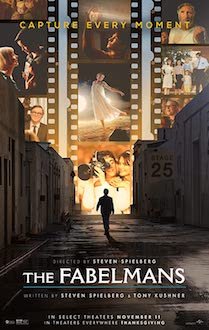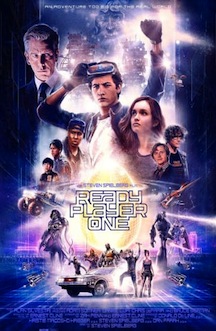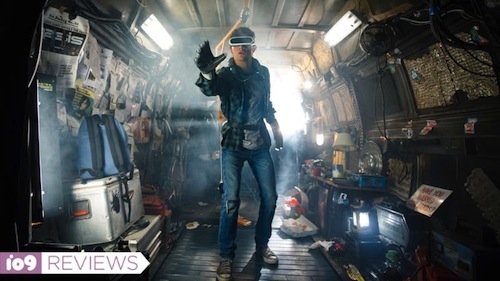Direction: Steven Spielberg
Country: USA
The Fabelmans, a notably sharp semi-autobiographical drama mounted with proficiency, evokes Steven Spielberg’s youth years, dwelling in his great-to-watch family dynamics and early passion for cinema. Spielberg's declaration of love for the seventh art is sincere, funny and tender, with some magical moments that will easily conquer the viewers’ heart.
Never in the same vein of his previous works, Spielberg shows how versatile he is, a fact confirmed through his alter ego, Sammy Fabelman (Gabriel LaBelle acts with class and gravitas), who makes low-budget westerns, WWII battles, and homemade movies with the same acuity. We follow him with amusement from age seven to 18, a specific life period that starts in New Jersey, passes by Phoenix, Arizona, and ends in California. Observant, Sammy captures a secret within the family that confounds, hurts and scares.
After the disappointing and unnecessary remake of West Side Story, it’s good to see master Spielberg back in business with an intimate, personal chronicle that is as much endearing as it is eye-popping. The melancholic grace of the image is superb and benefits from the obvious pleasure of staging, while the story itself - another successful collaboration with playwright/screenwriter Tony Kushner (Lincoln, 2012; Munich, 2005) - contains real finds, intense moments of happiness, and painful struggles proper from the adolescence.
The Fabelmans is forged with a developed sense of narrative, harmonious composition, and an unblemished command of the actors, with my favorite episode occurring in the final minutes, when the young filmmaker meets the renowned director John Ford (impeccably impersonated by David Lynch) at CBS Studios. Spielberg hasn’t lost sight of the engaging, practical nature of his style, and benefits from the excellent performances of LaBelle, Paul Dano and Michelle Williams.










